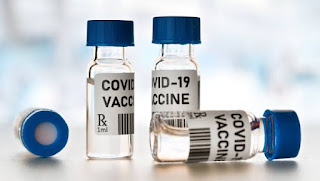COVID-19:Can clothes,shoes tract the virus to your house?See researchers 's findings
- There have been no documented cases of transmission of the novel corona virus through clothings and shoes up till now.
- If you are taking care of or are regularly in close contact with to individual with COVID-19, doing laundry frequently is an essential part of preventive hygiene.
- This includes, especially, high risk individuals such as healthcare workers.
- Most household detergents are sufficient to kill the virus while doing laundry.
Even if you’re trying your best in a self-quarantine situation to stay safe, how do you keep the novel corona virus, SARS-CoV-2, from finding its way in?
You’re only making essential trips out for shopping. When you go out you practice safe social distancing. You wash your hands frequently and disinfect “high contact” surfaces such as doorknobs and countertops when you get home.
Still, there’s a worrying feeling that even though you’re maintaining good hygiene, you’re skeptical about the objects you’ve brought home with you. Are your groceries safe?And your plastic bags? What about the clothes you’re wearing? Your shoes?
There are certain unavoidable truths to going shopping, and one of them is that you’re going to wear shoes and clothes to do it.
Here’s what we know about the transmission of the novel corona virus through regular articles of clothing
“There’s a lot we don’t know about this virus, and we are learning more about it on daily basis.But our current understanding is that if you are out for a walk in your neighborhood or making a quick visit to the grocery store, it is highly uncertain that you would contract COVID-19 via your clothes or shoes. We don’t believe shoes or clothing are a significant source of transmission,” Dr. Vincent Hsu, MPH, a board-certified internal medicine, infectious diseases, and preventive medicine physician at AdventHealth in Orlando, declared.
According to Hsu, there have been no documented cases of transmission of the novel Corina virus through clothing and shoes at this moment.
COVID-19, the flu-like respiratory disease caused by the novel corona virus, is spread by respiratory droplets. Coughing and sneezing by an infected person in close proximity to another one ,are the most likely means of direct transmission.
However, we do know that the novel corona virus can survive outside the human body on different surfaces, which can lead to a transmission if touched.
experts estimate that the virus can survive for a few hours up to a few days.
While metal and plastic can provide a haven for the virus for up to 2 to 3 days, clothing is not seen as a material conducive to its survival.
“Our best studies in this area are with influenza and other previously known viruses, but clothing in general is not believed to be the best incubator of viruses,” Dr. Kathleen Jordan, an infectious disease specialist and vice president at CommonSpirit Health, stated.
Humidity and moisture play a significant environmental role in whether or not a virus may thrive. The nature of most cloth materials is not conducive to this effect.
“Clothing is usually more of a mesh than a hard surface, what could potentially aerate the environment more readily,” added Jordan.
Transfer of the virus through clothing is unlikely, but the experts agreed there are a few scenarios in which immediate laundering is a good idea.
Shoes tend to be a lot dirtier than clothing because of their very nature. Therefore, they’re more likely to carry bacteria and other contaminants into the home.
A new study published by the Centers for Disease Control and Prevention (CDC) suggests that the novel corona virus may live on the soles of shoes.
In the study, researchers collected samples from the soles of shoes worn by members of the medical staff in the intensive care unit at a hospital in Wuhan, China.
They found that half the samples tested positive for SARS-CoV-2, the virus strain causing COVID-19.
These findings have led researchers to suggest that the soles of medical staff shoes could function as carriers of the disease.
Nonetheless, experts agree that shoes are an unlikely source of transmission of the novel corona virus in majority of cases. And that’s because we already treat shoes how they should be treated.
“What we regularly do with shoes is already protective. We don’t put our shoes on the kitchen table. We don’t put shoes in our mouths. They aren’t high touch surfaces. So, our daily patterns already reflect our management of shoes as dirty objects,” declared Jordan.
But you can take additional safety measures to ensure that contaminants don’t enter your home by cleaning off your shoes and either leaving them at the doorstep or designating a place safely away from social areas of your home in which to leave shoes and other outerwear.
“Taking off your shoes and cleaning them before you enter your house (and leaving them in your garage, washroom, or porch) could also be advisable. This will prevent you from introducing virus into your home from a simple trip to the shopping store. Just make sure you clean them outside your home or apartment, and let them dry naturally,” Dr. Robert Glatter, an emergency physician at Lenox Hill Hospital in New York City, concluded.











Comments
Post a Comment